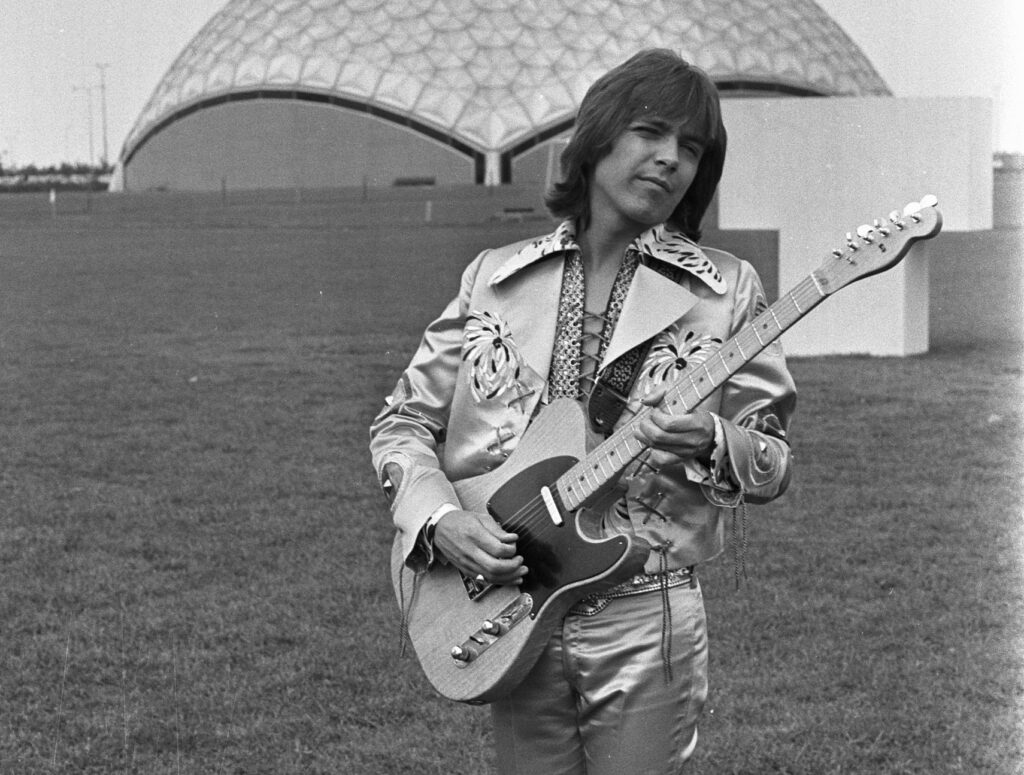
“Cry” is a farewell spoken in a whisper, where dignity replaces drama and memory does the weeping
Among the many recordings in David Cassidy’s long and complicated career, “Cry” stands apart not because it was loud, fashionable, or commercially driven, but because it felt necessary. Released in the early 2000s as part of the reflective album Then and Now, this version of “Cry” is not the sound of a man chasing relevance—it is the sound of an artist finally standing still, allowing the weight of time to settle into his voice.
Originally written in 1951 by Churchill Kohlman, “Cry” is a classic American torch song, famously brought to life by Johnnie Ray in an era when male vulnerability in popular music was still startling, even unsettling. In its original context, the song was dramatic, almost shocking—a man openly admitting heartbreak, tears, and emotional collapse. Decades later, when David Cassidy returned to this song, its meaning quietly transformed.
Cassidy’s “Cry” does not plead. It does not accuse. It does not break down in front of the listener. Instead, it accepts. This is heartbreak viewed from a distance—not cold, but composed. His voice, no longer polished by youth or buoyed by innocence, carries a thin, lived-in grain that cannot be faked. Each line feels as though it has been carried for years before finally being set down.
Placed near the end of Then and Now, “Cry” functions almost like a closing thought after a long conversation with the past. The album itself was conceived as a dialogue between eras—re-recordings of earlier successes alongside newer material, all filtered through the voice of someone who had seen fame rise, fracture, and fade. The album’s strong reception, including a Top 5 position on the UK Albums Chart, confirmed that listeners were not only ready for this version of Cassidy—they were grateful for it.
Musically, Cassidy’s interpretation is restrained to the point of fragility. The arrangement avoids theatrical flourishes, allowing space to become part of the song’s emotional architecture. Silence matters here. Pauses linger. The listener is invited not to be impressed, but to remember. And memory, in this performance, is the most powerful instrument of all.
The lyric “If I cry when you leave, I won’t blame it on you” becomes something entirely different in Cassidy’s voice. It is no longer a dramatic gesture—it is a statement of responsibility. Love ended, not because someone failed spectacularly, but because life moved forward without asking permission. This is the heartbreak that comes not with slammed doors, but with quiet rooms and unfinished sentences.
What makes “Cry” especially poignant in Cassidy’s hands is its placement within his broader story. Once celebrated as a symbol of youth and romantic fantasy, he spent much of his later career trying to reclaim authorship over his own emotional narrative. “Cry” feels like one of those rare moments where he succeeded fully. There is no attempt to sound young again. No attempt to compete with his past. Only the honesty of a voice that has nothing left to prove.
Today, “Cry” endures not as a hit, but as a companion piece—for late evenings, for solitary reflections, for moments when memory feels heavier than regret. It reminds us that some songs are not meant to arrive loudly on the charts. They arrive quietly, when the listener is finally ready to hear them.
And in that quiet, David Cassidy does not ask us to cry for him. He simply shows us that crying, sometimes, is the most dignified form of truth.